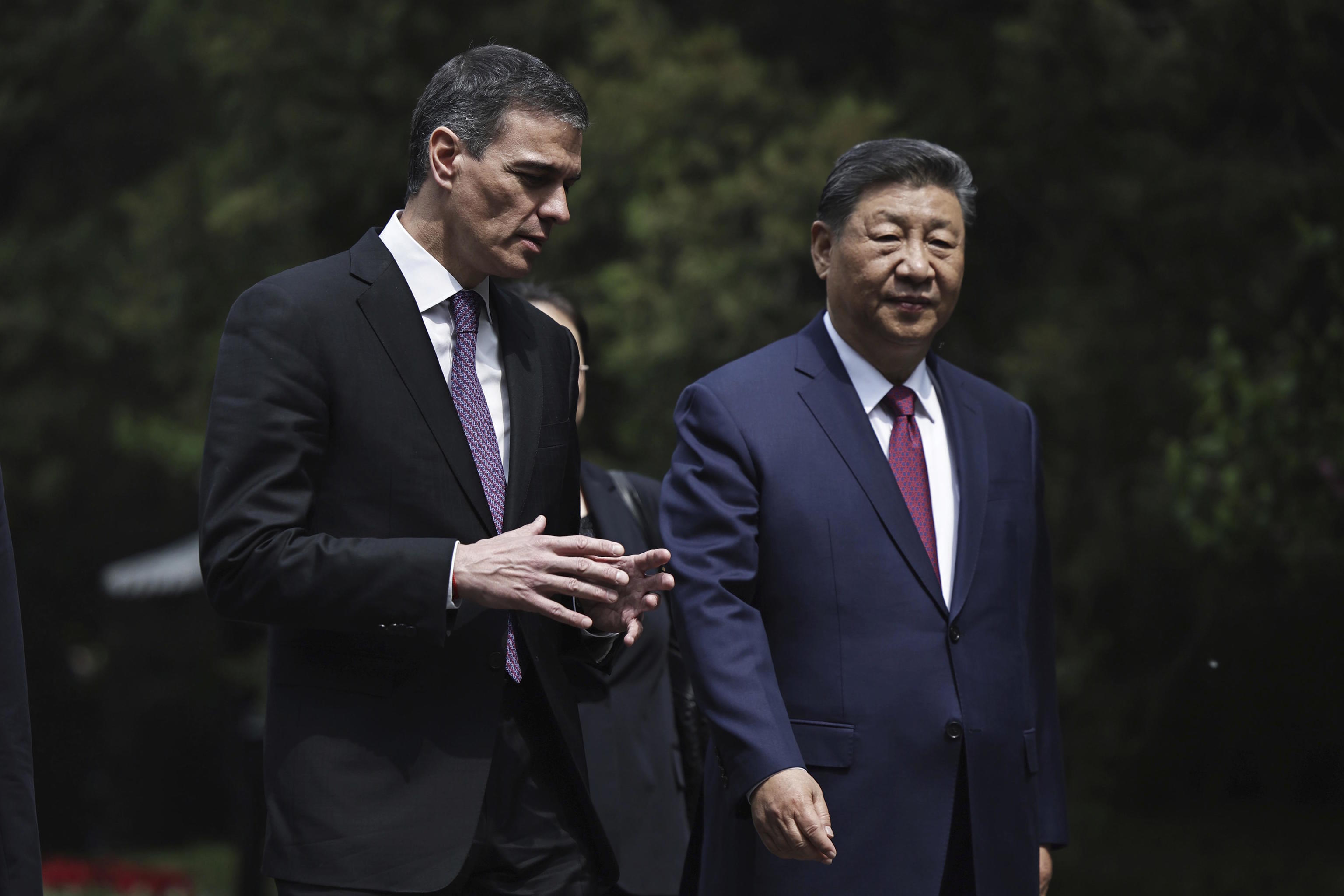Nearly three hours of meeting at the presidential palace. A lot of time. A demonstration of the harmony between Xi Jinping and Pedro Sánchez. The President of the Government of Spain leaves Beijing satisfied. Among other things, two new export protocols have been signed in the agricultural sector covering pork and cherries, which was one of the main objectives. And he has shown that Spain can play a role as a builder of a more balanced relationship between Spain and the EU with China.
"We believe it is necessary to continue advancing in the establishment of solid relations between China and Spain and China and the EU," defended Sánchez in a press conference in Beijing after his meeting with Xi. But this good harmony displayed by the two leaders is not well received in the US, which has already sent some messages this week. The US Treasury Secretary said that this approach "would be like cutting one's own throat." Sánchez, who was among the first within the EU to champion the route to China, is trying to send messages to calm the US. "Spanish foreign policy is not against anyone. It is in favor of understanding between countries, defending multilateral order, and free trade."
In this endeavor to achieve a more fluid commercial relationship with China, which among other things allows Spanish companies to export more and make investments, Sánchez takes shelter under the EU umbrella. In recent days, he has been in contact with Ursula Von der Leyen, President of the European Commission, and although the visit is bilateral, it is coordinated and done in collaboration with the EU. That is the shield he displays against the criticisms that, for example, his trip has raised within the PP. "Spain's foreign policy is consistent and in line with what the EU has done and what other state administrations have done."
"China is an essential partner in addressing global challenges such as the fight against the climate emergency, inequality, climate change... which are some of Spain's foreign policy priorities," Sánchez stated. The EU defines China in its documents as a "partner, competitor, and systemic rival," but in the Spanish government, they prefer to emphasize the first definition, giving it more weight, even though it is a regime.
The feeling with which the head of the government leaves Beijing is that this visit "has helped strengthen bilateral relations, to continue exploring growth opportunities, which are beneficial for both societies."
Pedro Sánchez, this Friday, during his press conference in Beijing.Pedro Pardo.AFP
The economic reports and data available to the government indicate that it is necessary to remove barriers to incentivize Spanish investments, as well as to work to attract more Chinese investments in Spain, in sectors such as renewable energies or gigafactories. In fact, before meeting Xi Jinping, the head of the government held a meeting with 14 Chinese companies: Chery, Tianqi, Hygreen, China Three Gorges, Catl, Hithium, China Energy Engineering Corporation, Trina Solar, Leapmotor, Sermatech, Saic, GCL, and Envision.
"We believe there are opportunities to deepen the bilateral relationship between Spain and China and the EU and China," Sánchez maintained. Adding a nuance: "It is important that China is sensitive to a legitimate demand: to have more balanced relationships and not so skewed in favor of its interests."
Sánchez's visit has coincided with the escalation of tariffs between the US and China, with tariffs and counter-tariffs. "I have conveyed to Xi that trade wars are not good, no one wins. Probably the world needs China and the US to talk."
Meeting at the presidential palace
During their meeting at the presidential palace, the Chinese leader thanked his Spanish counterpart for his interest and efforts to deepen relations between both countries and with the EU. "I am very pleased to meet with you," were Xi's first words at the start of the meeting. "This is your third visit in three years. It is a demonstration of your firm willingness to deepen our bilateral relations."
If Spain wants to have China as a privileged partner, the Asian giant also sees our country as a preferred ally within the EU framework. This is what Xi expressed face to face to Sánchez: "The more turbulent and changing the international situation is, the more important it is to maintain good and stable development of Sino-Spanish relations."
Sánchez has visited Beijing in 2023, 2024, and 2025. This current visit began to be prepared last year, but it has gained importance and relevance due to the tariff war promoted by Donald Trump, which has led to a trade escalation between the US and China. Hence, Sánchez wants to emphasize in these meetings the need to diversify relations with the Asian giant, not at the expense of the US, but to reduce dependence on this country. Looking at Asia as a commercial partner, where China is "a leading actor."
